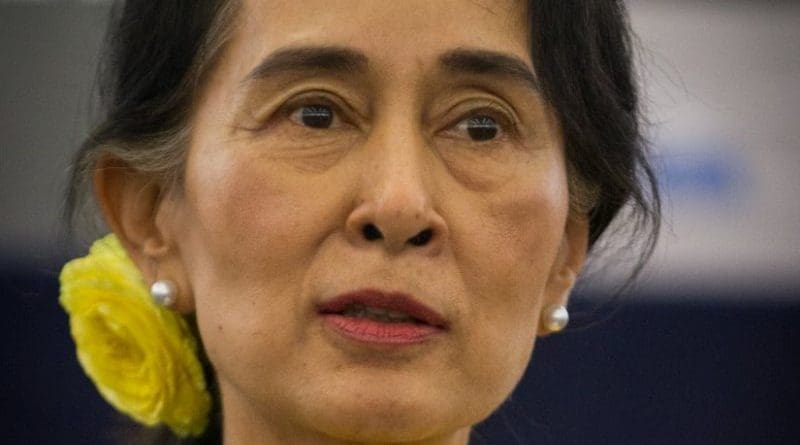Myanmar: Ethnic Parties Merge For 2020 Power Push
By UCA News
By John Zaw
Myanmar’s ethnic-based political parties are gearing up to take more seats in the 2020 national election by merging Kachin, Karen and Chin parties.
The Chin Progressive Party, Chin National Democratic Party and Chin League for Democracy have agreed to merge and register at the Election Commission as the Chin National League for Democracy.
Manam Tu Ja, a Catholic and chairman of the Kachin State Democracy Party (KSDP), said mergers are a positive development for the election.
“There are good prospects for ethnic-based parties in the 2020 election, so by doing this people can choose an ethnic-based party easily,” said the former vice-president of the Kachin Independence Organization, the political wing of the Kachin Independence Army.
He said a public meeting on April 10 will discuss a merger of the KSDP, Kachin National Congress and Kachin Democratic Party and choose the new party’s name, logo and flag.
In Karen, the Karen Democratic Party, Karen Democracy and Development Party and the Karen National Democratic Party have merged and registered at the Election Commission as the Karen National Democratic Party.
Yan Myo Thein, a Yangon-based political analyst, said the mergers will provide a step forward for winning seats in the election.
“Ethnic-based parties will play a crucial role in the 2020 election, so all parties from ethnic regions need to start drawing up a strategy,” he told ucanews.com.
He said people will choose ethnic-based parties in 2020 despite previously voting for the ruling National League for Democracy (NLD) to change the country.
Two-thirds of around 90 registered political parties represent minority groups from Myanmar’s seven ethnic-based states.
Ethnic-based parties suffered major losses in the 2015 national election as Nobel laureate Aung San Suu Kyi’s NLD swept to power by defeating the military-linked Union Solidarity and Development Party.
The Shan Nationalities League for Democracy (SNLD), however, won seven seats in the state parliament in 2017 by-elections while the ruling NLD got only nine out of 19 seats in national and state parliaments.
Gin Kam Lian, an upper house lawmaker for the Zomi Congress for Democracy party in Chin State, said it is important for parties to form an alliance.
“In our Chin situation, people can choose ethnic-based parties easily if we negotiate in advance for competing in a different constituency,” he told ucanews.com.
Pe Than, a lower house lawmaker for the Arakan National Party in Rakhine State, said effective mergers avoid splitting the vote.
“The voices of ethnic parties are very important, so our voices will be louder if we can get around 25 percent in the national parliament and work towards equality and a federal system,” he told ucanews.com.
Pe Than admitted Myanmar faces challenges as parties have previously split after mergers.
“Parties have common objectives for the development of ethnic people but personal affairs and power are the main reasons for splitting,” he said.
In Shan State, the SNDP and SNLD tried to merge before the 2015 election but the move was not successful.
Mergers among ethnic parties have been an issue of protracted discussion for decades, while such mergers met with limited success in the 1990 and 2010 polls.

